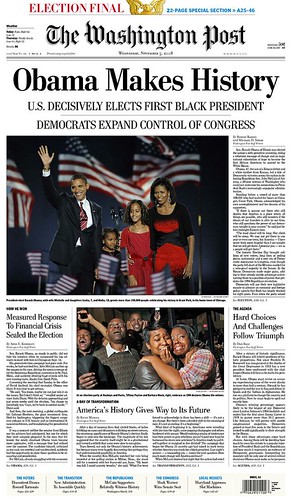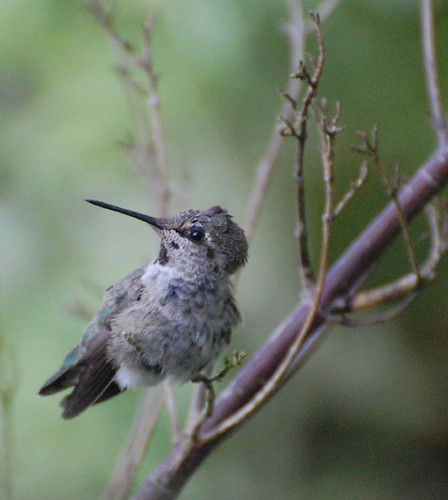It was Dad’s birthday. Another day for memories of times and people gone away. I thought fondly of him, as the early spring snowflakes mingled with pelting rain and blinding sun breaks. I thought of the time, a decade or more ago, that Dad was determined to take his little boat out to the pond and go fishing on his birthday…and shortly after his tail-lights disappeared from the end of the block, the snow started to fall. But we didn’t see Dad again until late afternoon. Snow or no snow, he went fishing.
Memories of Dad inevitably beget memories of Mom—our most recent dear departed. In a strange way, it seems like she’s been gone for as long as he has…though she outlived him by more than nine years. I have to confess, I don’t quite know how to file my memories of my mother. Because, after Dad died, circumstances conspired to put me, for all intents and purposes, out of her life. Which was an odd place for someone like me—someone who had never really left home.
After most of the rest of my siblings had tumbled out of the nest—way out, like about two thousand miles out—I stuck pretty close, even after I got married. Husband, more or less booted out of his own family, was gathered into the fold, and discovered in mine the parents he’d never had. We bowled with my folks, went out to Friday night dinners together, holiday partied together. We camped and fished, picnicked and played cards. We never built up a circle of friends our own age…we hung out with Mom and Dad. I’m convinced that one of the reasons I have such a heart for accommodating "older" people at the café is that I’m just used to socializing with folks of my parents’ generation. I feel comfortable with them.
When Mom and Dad retired, they moved away. It was something they had always talked about, but no one (at least, not I) ever expected to actually happen. They headed to Oregon, where Dad was born and raised. Forty years earlier, Mom had promised Dad that if they settled and raised their family near her family in Chicago, they would move back to his home state when they retired. Dad held her to that promise, and West they went; she, not very willingly. For me and my oldest sister, left behind at "home," it was especially painful. We had never felt the need or desire to wander too far from the nest…but then the nest upped and moved away from us.
Two years later, I dragged my own spouse (he, not very willingly) across the country. I just could not get a handle on life without my parents close by. We arrived on their doorstep in July of 1984, all our earthly belongings and many pets packed into a 12-foot rental truck that nearly breathed its last as we nosed into their driveway.
We took up where we’d left off. Mom and Dad were our family, and our social life. We fell right back into the pattern of Friday night dinners out, holiday parties, camping, fishing, picnicking and playing cards. We bought a house less than a mile from theirs. We shared landscape and home improvement projects. My job took us away for a couple of years, but when the job ended, like iron to a magnet, we were drawn back to the folks. My sister’s death in 1995 at the age of 48 had rocked my world and inspired my new world view: life was too short to not spend it where you wanted to be, with the people you wanted to be with. Mom and Dad were getting older. Who knew how many years they had left?
As it turned out, they didn’t have many. At least, Dad didn’t. Sixteen months after we moved back to their town, Dad was diagnosed with cancer. In four months, he was gone.
Those four months, and the few after he died, formed the relationship my mother and I would have for the rest of her life. And it wasn’t a good one.
Just days after Dad had his cancer surgery, Mom got sick, too. No one knew what was wrong with her; the doctors couldn’t find anything definitive. Clueless and overmatched, we developed the theory that her physical crash was possibly her emotional and psychological reaction to Dad’s illness. But we were so overwhelmed with everything that was going on with Dad that we needed her to be the best she could be. We felt like we couldn’t allow her to be an invalid—it was not going to do her any good, and we were not prepared to deal with both parents being down. Since I was the one who had quit my job to help with Dad, it was up to me to try to goad Mom into doing the things we thought she could do but, for whatever reason, didn’t want to. I would make her get out of bed, make her walk. I wasn’t trying to be mean to her. I thought that I was doing what was best for her.
Six months after Dad died, we finally found out what was wrong with Mom. Osteomyelitis —a severe infection of the bone—in her spine. Serious, extremely painful. She could have become paralyzed. She could have died. And no one knew. I cringed when I remembered the times I’d made her walk, made her do things that, as it turned out, she really couldn’t do. Unfortunately, Mom—being Mom—also remembered. She never forgot. And she never forgave me.
Mom was in and out of hospitals and nursing homes for months after Dad died, and then she made the decision to go into Assisted Living. Something had to be done with their house, and all their stuff. Nobody wanted to deal with it. In the end, my husband, thinking it was what Dad would have wanted him to do, volunteered to tackle the job. This didn’t set well with my mother, though. For the rest of her life, she would hold Matt responsible for giving away her things and selling her house. Not that she could ever have used those things, or ever been able to live in her house again. She’d lost everything, and she needed someone to blame. And my gentle husband got the rap.
So, there we were, childless forty-somethings who had spent our entire married life snuggled happily inside the cocoon of my family, all at once rejected and on our own. The family that had been our focus and our fortress for twenty years was no more. And what was left of it looked upon us with suspicion and disdain. We were just…lost.
It’s taken me this many years—almost an entire decade—to sort through the tangled knot of rage, sadness, pain and love that is my bond with my family. My remaining sisters and I have slowly hacked away the dead, decaying bits of anger and resentment and gone about building a new relationship on the solid foundation of our shared history and the love that is our parents’ legacy. The worst trials of the past ten years have begun, mercifully, to fade in the mists of time. Mom’s death this past December shone fresh light on some of the things I had been only too willing to forget. At least now, when I look upon these things, the pain is no longer so acute that it threatens to undo me.
Even so, more healing is on the horizon. As I began to recognize—and forgive—the resentment my mother had towards me in the last years of her life, I thought to myself, "I sure hope I never get so old and cranky that I do that to someone I’m supposed to love." In the next split second, I realized that I already have done this same thing—to my sister’s daughters. We had a cataclysmic falling out, and our relationship just…ended. For all these years I’ve assured myself that I’ve been blameless and justified in my resentment. And now, here I am having one of those "Oh, my god, I AM my mother!" moments. But I am not seventy-five years old, and I have not just lost my husband, my home, and all my belongings, so I have no excuse.
Isn’t it funny how often life makes clear the sins of others in order to convict you of your own?

















